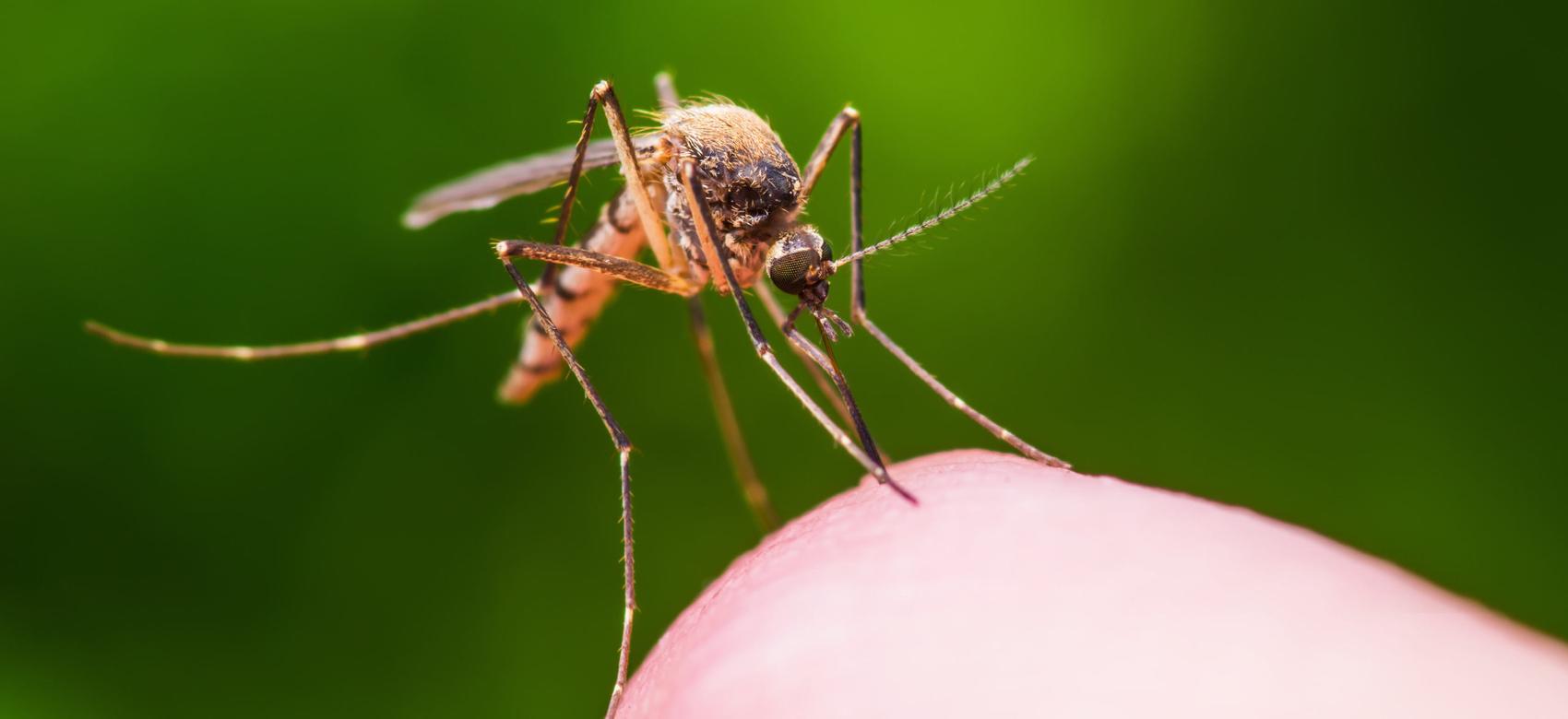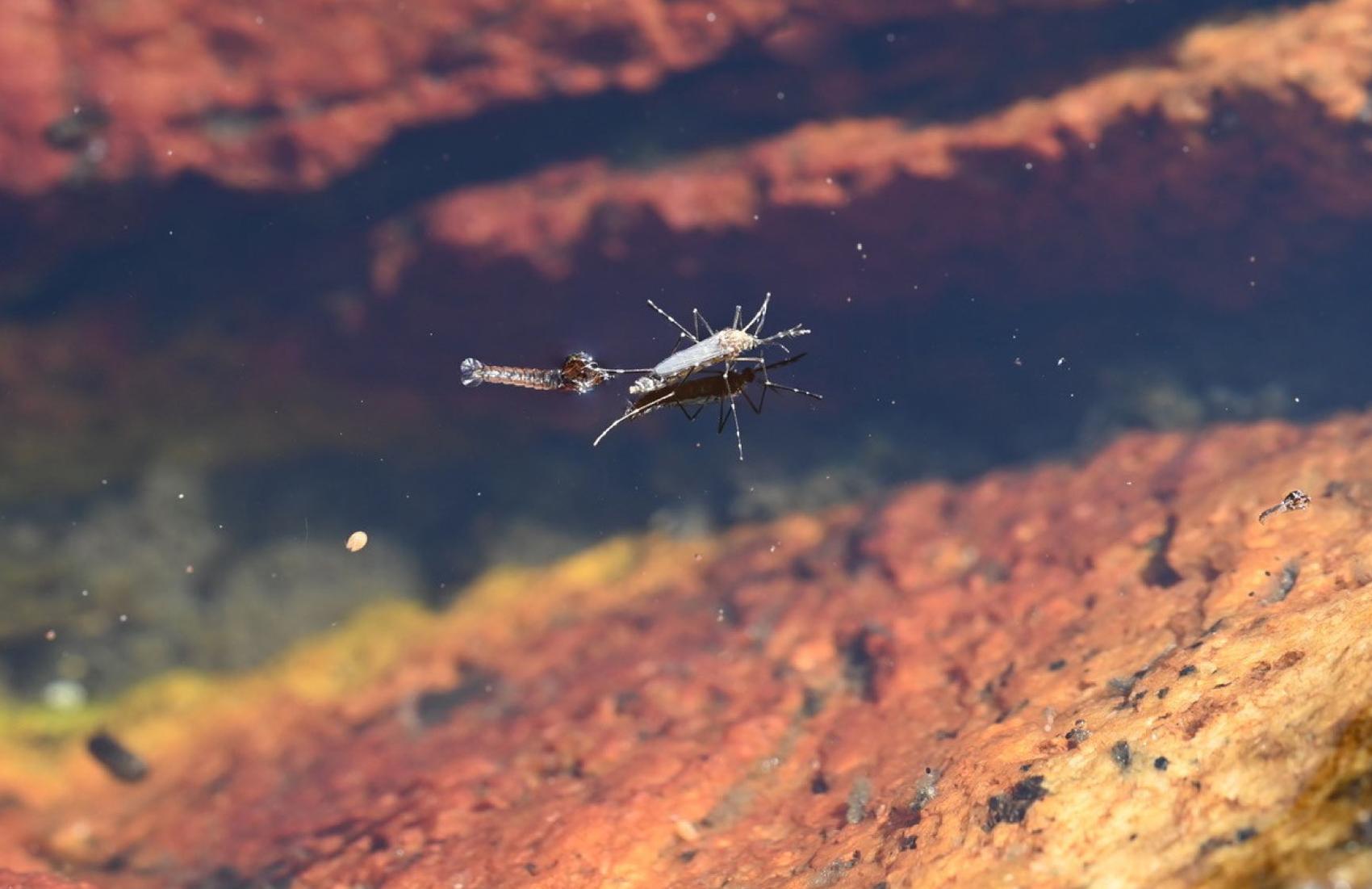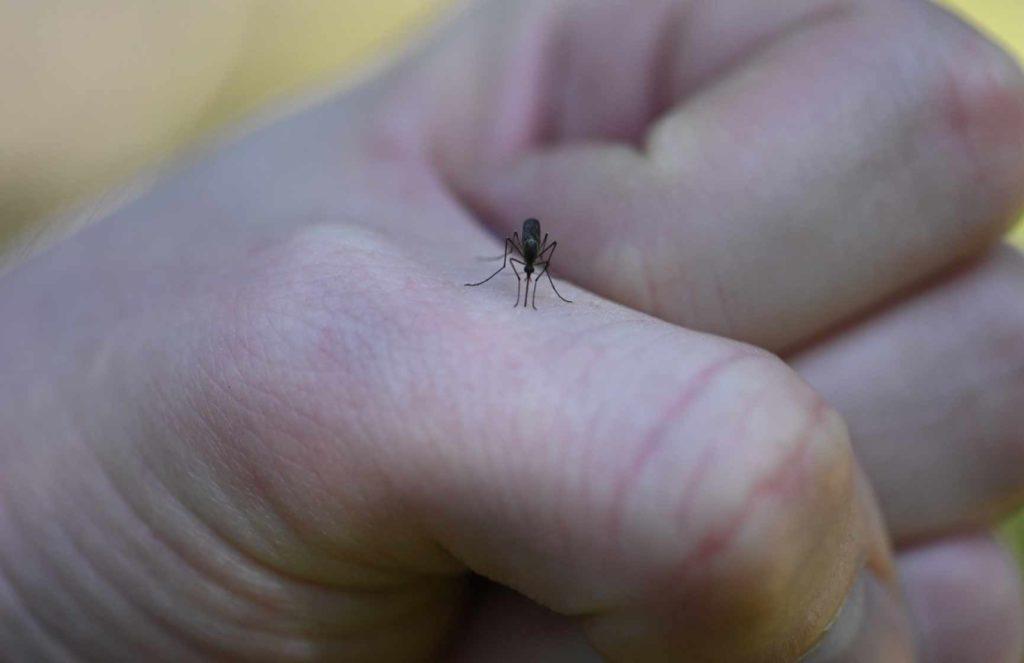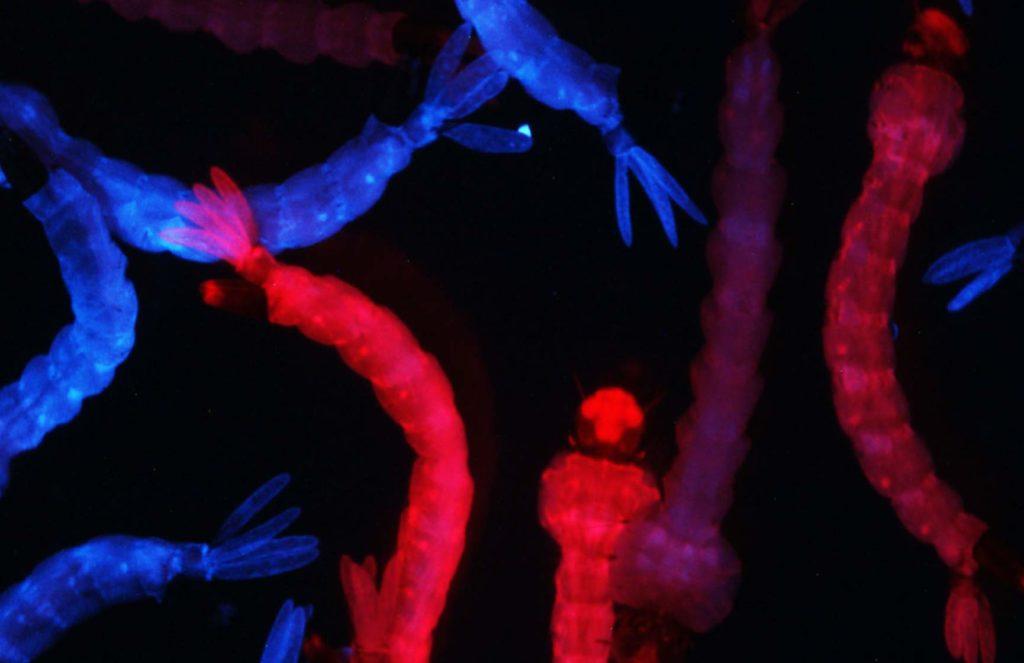How to repel mosquitoes and avoid bites
By Temidayo Olayide Ayodele-Oja

Mosquitoes are indeed out to get you, says UBC Department of Zoology professor Dr. Ben Matthews, who offers tips on the best repellents and other ways to avoid them
Summer is almost over, but that doesn’t mean mosquitoes aren’t still searching for their next meal—and you might be next.
A new study co-authored by UBC’s Dr. Ben Matthews suggests humans may just be the most sought-after delicacy for the pesky insects. A common type of mosquito, the globally invasive Aedes aegypti, literally sniffs out humans, driving them to bite us even over other animals.
In this Q&A, Dr. Matthews explains how to avoid being on the menu for mozzies, and why the future of bite prevention might include odour-reducing skin creams.
Why do we smell so good to mosquitoes?
The female mosquitoes are the ones that bite. Using their vision and other senses, they can detect between animals and humans from the carbon dioxide in our breath and body odour from our skin, as well as body heat and humidity. Every time you breathe out, female mosquitoes perk up all of their senses and begin trying to find where the carbon dioxide might be coming from.
In the past few hundred years, Aedes aegypti mosquitoes have evolved to feed specifically on humans, and we know that odour is one of the ways they find us when other animals are around. In our recent paper with colleagues from Princeton University, we found that a particular compound in human odour actually activates a specific area of the mosquito brain, while animal odour doesn’t, meaning this type of mosquito will actually bite a human even if the human is standing next to another mammal. And it’s a pretty good bet that the same type of cues will be used by other types of mosquitoes as well.

What type of mosquito is most common in Canada?
Aedes aegypti is one of the most widely distributed mosquitoes that carry human diseases, but they’re not found here (although they have been found in the summers in southern Ontario and a related species, Aedes albopictus has already established residence there). Canada has 84 known mosquito species. While you never want to get bitten, we’re lucky in Canada that when we do get bitten we don’t have to worry too much about diseases.
They’re so highly evolved to find and bite humans, it’s like an arms race between us and the mosquitoes: we deploy chemicals and now there are many strains resistant to these chemicals; some species evolved to bite during the day, because humans were using bed nets at night. Some make use of human structures to survive in places they couldn’t otherwise, including living in parking garages during the winter.

What can people do to avoid being bitten?
Avoid having standing water around your house
This is perfect mosquito breeding territories, including tires that collect rainwater, puddles, clogged gutters, bird baths, even a soda bottle or bottle cap with some water in it.
Use insect repellents that contain DEET
It’s our best tool to this day against mosquitoes and while some of the natural repellents sound great, including citronella candles, they tend not to be super effective.
Avoid having exposed skin
Wear long sleeves and pants.
Avoid going to mosquito-dense areas
This depends on the species but generally avoid places with standing waters, including wooded areas or lakes. There’s even a mosquito that breeds in rock pools in West Vancouver’s Lighthouse Park.
Use screens and nets
If you’re travelling to places where mosquito-borne disease is endemic, have screens on the windows, don’t have the doors and windows wide open, and sleep under a mosquito net.

What does the future hold for mosquito bite prevention?
We think that the microbiome, or the bacteria that lives on our skin, and breaks down sebum is what attracts mosquitoes. There are people thinking about probiotic creams we could develop to augment or replace bacteria on your skin to produce repellent odours, or reduce the bacteria that produce the odours that are attractive to mosquitoes. And a one-time use could last for months or years. That will be something to watch.
Temidayo Olayide Ayodele-Oja is a writer with UBC Media Relations. This article was published on August 15, 2022. This article is republished from UBC News. You can read the original article here. If you are interested in republishing this article, please contact UBC Media Relations.


